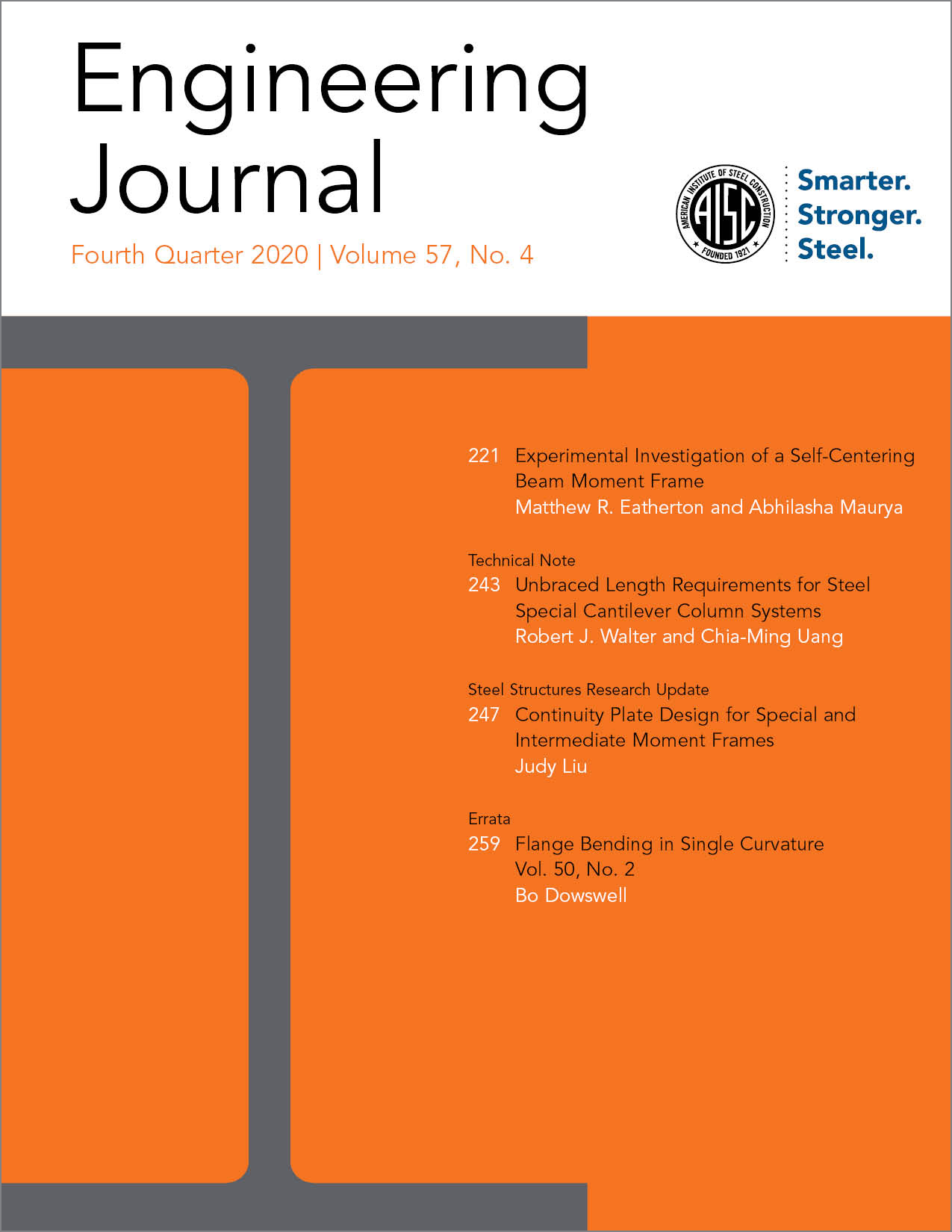Experimental Investigation of a Self-Centering Beam Moment Frame
DOI:
https://doi.org/10.62913/engj.v57i4.1170Keywords:
self-centering, seismic behavior, large-scale experiments, buckling restrained brace, moment frame, structural fusesAbstract
The self-centering beam (SCB) is a shop-fabricated unit that can be implemented in moment-resisting frames using conventional field construction methods to minimize permanent residual drifts after earthquakes and concentrate seismic damage in replaceable elements. An experimental program was conducted on five SCB specimens that were approximately two-thirds scale relative to a prototype building. The results showed that the beam end moments are not equal, as much as 60% different at peak moment, so total flexural strength, calculated as the sum of the moments at both ends, is a better way to characterize SCB flexural strength. Using this approach, the proposed equation to predict flexural strength exhibited an average error of 5% compared to the tests. The SCB was shown to have exceptional deformation capacity as the specimens were subjected to as much as 6% story drift, and the detailing was shown effective at concentrating inelasticity in the replaceable energy dissipating elements. The proposed design procedure is shown capable of controlling the story drift associated with undesirable limit states, limiting story drifts at zero force (eliminate residual drifts), and producing no observable inelasticity outside the energy-dissipating element at design level drifts.

